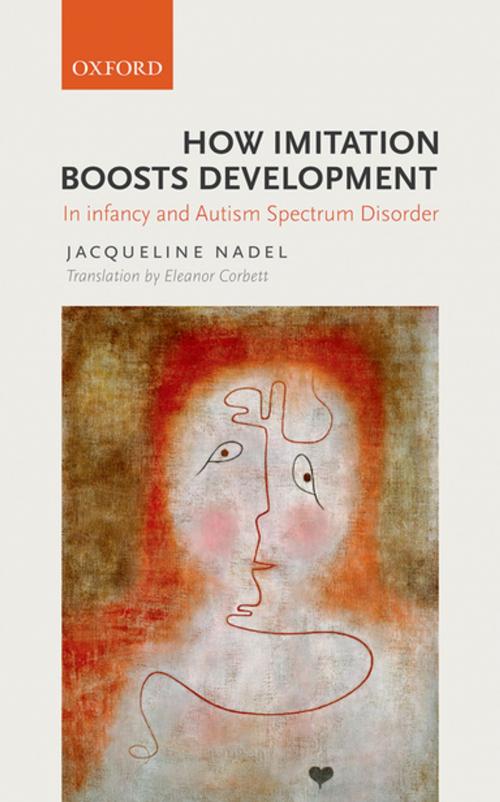How Imitation Boosts Development
In Infancy and Autism Spectrum Disorder
Nonfiction, Health & Well Being, Psychology, Child & Adolescent, Child Development, Science & Nature, Science| Author: | Jacqueline Nadel | ISBN: | 9780191008993 |
| Publisher: | OUP Oxford | Publication: | July 31, 2014 |
| Imprint: | OUP Oxford | Language: | English |
| Author: | Jacqueline Nadel |
| ISBN: | 9780191008993 |
| Publisher: | OUP Oxford |
| Publication: | July 31, 2014 |
| Imprint: | OUP Oxford |
| Language: | English |
It was Plato who famously stated that 'imitation is dangerous because it stifles creativity, hampers the development of personal identity and disrupts the perception of other people as unique beings'. There are some who still feel this way, and perhaps this explains why imitation has received less attention within the developmental literature than other human characteristics. So why are humans able to imitate - from the very second they enter the world? Can it have positive effects? Can it help us interact with others better? Can it even make us feel better about ourselves and our ability to influence and interact with the world around us? In this book, a leading development psychologist explores the topic of imitation - looking at why we imitate and the possible benefits it might bring - in particular to those affected by Autism Spectrum Disorders. The book offers fascinating insights into an often neglected topic.
It was Plato who famously stated that 'imitation is dangerous because it stifles creativity, hampers the development of personal identity and disrupts the perception of other people as unique beings'. There are some who still feel this way, and perhaps this explains why imitation has received less attention within the developmental literature than other human characteristics. So why are humans able to imitate - from the very second they enter the world? Can it have positive effects? Can it help us interact with others better? Can it even make us feel better about ourselves and our ability to influence and interact with the world around us? In this book, a leading development psychologist explores the topic of imitation - looking at why we imitate and the possible benefits it might bring - in particular to those affected by Autism Spectrum Disorders. The book offers fascinating insights into an often neglected topic.















